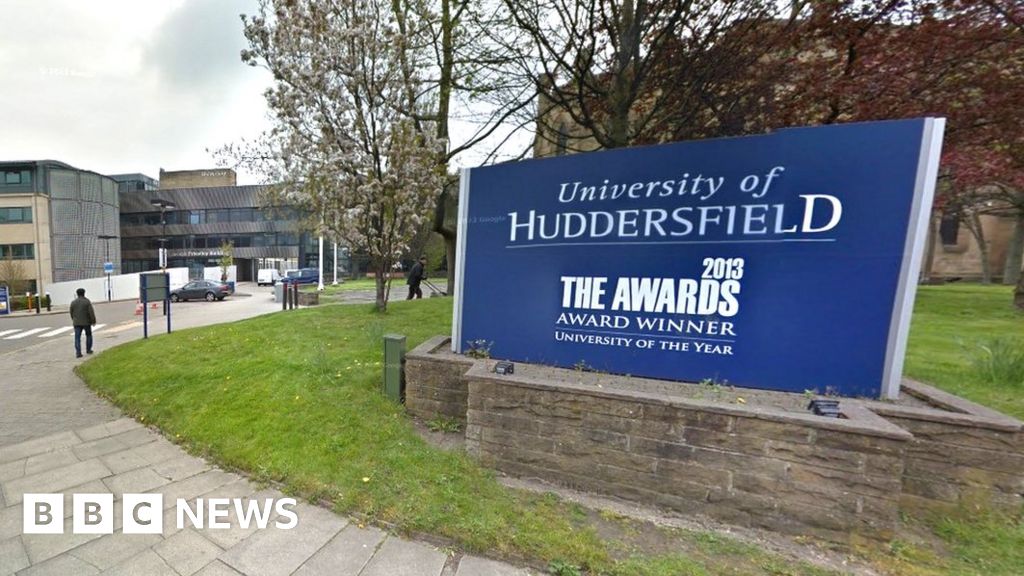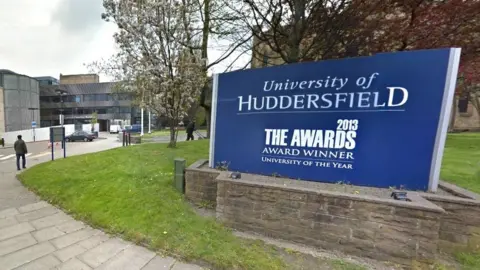Yorkshire and Lincolnshire unis’ £107m bill for staff redundancies

 Google
GoogleUniversities in Yorkshire and Lincolnshire have spent over £100m making more than 6,000 staff redundant since 2015, the BBC has found.
Redundancy programmes were implemented as universities struggled to meet rising costs, while tuition fees for domestic students were frozen in 2012.
The University and College Union (UCU) said it was a “perfect storm”.
The Conservatives and Labour are yet to set out their plans for funding higher education in their election campaigns.
BBC News has analysed the published accounts of Yorkshire and Lincolnshire’s 10 mainstream universities.
The accounts detailed how since 2015, 6,006 staff members had been made redundant as part of different savings programmes run by each institution.
Universities in the region, including the universities of Huddersfield and Bradford and York St John University, had paid out a total of £107m to the staff they had laid off, data showed.
 David Rhodes/BBC
David Rhodes/BBCAnnouncing job cuts earlier this week, York St John University said it was experiencing “financial challenges which are common across the sector” due to a predicted drop in international student enrolments as a result of changes to the visa system.
Last month, the University of Bradford announced it needed to save £10m in the next financial year as it opened a voluntary redundancy scheme for staff.
‘Long-running problem’
English student fees are capped at £9,000 a year, with some universities relying on overseas students – who can pay more than £25,000 a year – to cover the cost of running some courses.
Julie Kelly, regional organiser for the UCU in Yorkshire & The Humber, said universities had been “hit by the loss of international students”.
She added that universities faced a “perfect storm” and it was “a long-running problem”.
“We’ve seen some institutions borrow heavily to build fancy new buildings when money was cheap and they are now struggling with the repayments,” she said.
“The impact on staff is huge. Our members are worrying continually about whether the next round of cuts is going to affect them.”
 David Rhodes/BBC
David Rhodes/BBCKhal Boterill, a second year PhD student at the University of Huddersfield, said: “When I’ve walked to university each morning, I’ve had no idea what I’m going to find.
“We’ve seen staff just leave mid-way through a course and that’s been really damaging to my studies.
“I made a career choice to come to this university and I’ve had no satisfactory explanation why these cuts are being implemented.”
Meanwhile, Megan Horner, who graduated from the University of Huddersfield this year, said while she had hoped to return there to study for her Master’s degree, she had instead had to seek employment.
“I do feel let down by the system and by the fact that we’re encouraged to go to university and pay extortionate amounts of money for a degree we’re not even guaranteed is going to be the same at the end,” she said.
The University of Huddersfield told the BBC that the job cuts were a “proactive effort to secure a dynamic and sustainable future” during a “financial crisis” in higher education.
 Louise Fewster/BBC
Louise Fewster/BBCIt is expected that the Conservatives and Labour will lay out how they plan to fund higher education when they publish their general election manifestos next month.
In May, Prime Minister Rishi Sunak promised to scrap some university courses in England to help fund 100,000 apprenticeships.
However, last year, Labour’s current leader Sir Keir Starmer ruled out scrapping fees, but he said the party was looking at alternative options for funding.

Related
Llyods Recruiting Engineers In India After Slashing Jobs In UK
Lloyds Banking Group is planning to hire hundreds of engineers in India as the company plans to shift its employment opportunit
Major new funding for music acts that supercharged careers of…
£1.6m Music Export Growth Scheme to support 58 independent UK artists to tour the world Funding will boost UK’s creative industries – a key growth se
Well-loved restaurant chain to close 8 venues across UK as…
A BELOVED restaurant chain has announced it will close eight venues across the UK, scrapping 158 jobs in the process.Owners are pointing the finger at Labour's
US adds 151,000 jobs in February as unemployment rate ticks…
The latest figures published by the US Bureau of Labor Statistics today (7 March) came in below market expectations, with economists polled by













